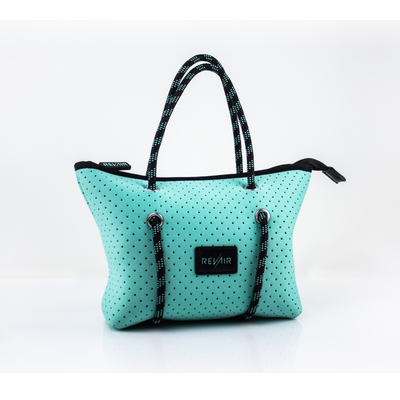
Discover How Well You Know Your Hair Type: Finding The Perfect Routine
Frizz, untamed curls, dead ends, no hair growth and so on goes the list of nightmares that come with trying to find routines that work. We all have our go-to hair routines and products we use to try and tame our strands.
But do you ever question whether those products are actually good for your tresses? Understanding your hair type is the key to solving your hair frustrations and finding the perfect routine you know will work for you.
HAIR ISN’T ONE SIZE FITS ALL
What is crazy about hair is that it comes in so many different shapes, sizes, types, etc. At first glance, you would think that all hair is just hair.
But having straight hair is completely different from having curly hair, and even one curly hair type can be different from another.
We would all love it if our favorite YouTuber or influencer's exact routine could work as perfectly for us as it does for them, but that is not always the case.
Products and styling techniques that work on one hair type may not work on another, and the same is true for when you get a haircut (hence the upcoming popularity of the curly cut).
Finding out your hair type can be either super simple or fairly challenging. The only reason for the challenge is that most of the time, one head of hair usually has more than one hair type.
Even so, getting a general grasp of your hair type is essential because it can help you determine what products are healthy for your hair or what hairstyles are best for you.
THANK YOU, ANDRE WALKER
One of the original hair typing systems was created by hairstylist Andre Walker (Oprah Winfrey’s stylist) in the ‘90s.
The initial reasoning for this system was to market his hair care line, but it has now been adapted as a standard for hair typing.
This system covers the basics of hair types and is continuously being adapted to be inclusive of the diversity for the various hair types across the world.
SO WHAT’S THE SYSTEM?
Essentially, hair type is divided into four main categories and then specialized into three subcategories of A, B or C. More often than not, your hair will fall into a range of these subcategories, because as much as we would like it to be, hair texture is more complex.
Learning about all of these types and their subcategories is important because it helps you determine where you fall and teaches you about different hair characteristics.
Think of hair types as your group of friends: each person has a different personality and reacts differently to different situations. Your strands are the exact same way.
By the end of this, you will be a hair typing master, equipped with the knowledge to better care for your tresses. As a bonus, we have included tips and tricks for each hair type to make your life a little easier.
SO HERE’S THE BREAKDOWN
Type 1 - Straight Shooter (Straight)
Type 1 hair is our straight shooter, also known as straight hair. Type 1 strands are naturally straight with no curl pattern. Straight hair can typically grow easier and faster than the other hair types.
This hair type tends to be greasy and shiny. This is only because the straight strands allow the natural oils from your head to reach down the hair shaft to the ends.
Here are some celebrities that have the straight hair type: Cher, Kendall Jenner, Rachel Bilson, Frieda Pinto.

Type 1A
Type 1A is hair that has baby-fine, completely straight strands. This type is straight from root to tip. Typically, type 1A hair has little to no body and has difficulty keeping a curl. This hair type is the rarest kind. Only around 2% of people worldwide have 1A hair.
Type 1B
Type 1B is not completely flat and has more body than its Type 1A counterpart. Most straight-haired people will fall into this hair type category.
Type 1B is distinguished from 1A by its ability to hold a curl. The ends of Type 1B tend to curl under slightly versus them being completely straight.
Type 1C
Type 1C is generally straight, has body like 1B and has a few waves hidden here and there. This hair type has strands that tend to be thick and coarse while having the ability to hold a curl.
Type 1C can also have a perfectly tousled look when left to dry naturally.
Tips and Tricks for Our Straight Shooter
The biggest struggle with straight hair is that it tends to get greasy very quickly. The best way to combat that is to wash your hair more often and use a product like dry shampoo between wash days. Be sure to choose a brand that doesn’t have benzene (a known carcinogen).
Recommended Products: Since this hair type does not have the most body, use volumizing shampoos and conditioners to give your straight hair a little more "Oomph!"
You should avoid heavy products, so you do not give your hair more reason to produce grease or struggle against build-up.
Styling Tips: When styling your hair after drying, you can put a little dry shampoo on your roots to soak up excess oil. You can also try using a texturizing product from root to tip to increase your hair’s volume.
Type 2 - Lax and Loose (Wavy)
Type 2 hair is our lax and loose hair type, also known as wavy hair. This hair texture is naturally wavy and forms an “S” shape. Type 2 hair is not as oily as Type 1 because of its slight texture, but it’s not completely free from combating oil or dryness.
Type 2 also tends to be thicker than Type 1 hair. Consider Type 2 as the happy medium between curls and straight hair.
Here are some celebrities that have the wavy hair type: Scarlett Johansson, Lorde, Kate Hudson.

Type 2A
Type 2A hair has loose, natural, beachy waves. This hair type has a slight bend that forms more of “C” shape when dry. Type 2A tends to be the least frizzy in
the Type 2 hair categories. This hair texture can be easily weighed down when you apply too much product.
Type 2B
Type 2B hair has clearly defined and tightly drawn waves - think of surfer curls. This hair type tends to be frizzier than Type 2A, and the waves form an “S” shape when dry.
Type 2C
Type 2C hair has defined waves that start at the roots, and it’s thicker than the other subcategories. This hair type starts to form loose spiral curls and has that “S” shape. Type 2C tends to be the most prone to frizz in the Type 2 category.
Tips and Tricks for the Lax & Loose
With wavy hair, the biggest frustration is that it tends to frizz easily. To keep wavy hair at its best, you have to find the perfect balance between controlling frizz and not weighing down the natural curl your hair has.
Essentially, you have to add moisture and volume all while keeping the waves. The key is not being heavy-handed when applying products to your hair.
Recommended Products: Shoot for shampoos and conditioners designed to hydrate and moisturize your hair. You can use a moisturizing hair mask once a week to help lock in that hydration and reduce frizz. Tackle product build-up with a pre-wash rinse or a cleansing shampoo.
Styling Tips: The key to keeping your hair frizz-free is to touch it as minimally as possible. When your hair is damp, apply a little styling mousse or cream from root to tip to keep that frizz away.
Type 3 - Stunningly Spirited (Curly)
Type 3 hair is naturally curly and has an “S” shape. This hair type forms ringlets that are naturally defined. Type 3 tends to be dry due to its texture.
The natural oils in the scalp are not heavy enough to get to the end of the curl. Type 3 hair usually has fine strands and is easier to style than Type 2 hair.
Here are some celebrities that have the curly hair type: Alicia Keys, Shakira, Taylor Swift, Tia Mowry.

Type 3A
Type 3A hair has loose "Shirley Temple" curls that have a silky texture. These curls are easily defined on their own without using a lot of product.
Type 3A curls are the largest in diameter and sometimes have a mix of wavy pieces. This hair type has a thick texture with some shine, but it can be prone to a little bit of frizz.
Type 3B
Type 3B hair has curls that are springy and spiraled. This hair type has ringlets that are about the width of a marker. Type 3B is still pretty defined without product, but can get frizzy without a little bit of help from some type of product.
Type 3C
Type 3C has curls that are tighter and more coily than Type 3B. The curls of this hair type are thick and often have a lot of texture.
The individual strands of Type 3C are packed closely together and moderately defined. These corkscrew coils can range in size and are the most prone to frizz in the Type 3 category.
Tips and Tricks for the Stunningly Spirited
Curls and frizz are the furthest from friends, but the key is to keep your curls moisturized. The right shampoo and conditioner can hydrate your hair while, mousses, creams and jellies can be amazing for frizz control and help define your curls.
Recommended Products: Look for curl-enhancing, leave-in conditioners and creams. You should also experiment with products like mousse, hair oil or curl jellies to define your coils and control your frizz.
Once you find the perfect combo, your curls will be living lavish.
Styling Tips: To embrace your beautiful curls, apply lightweight products like hair milk so you do not weigh your curls down. Try a detox rinse if you need to overcome existing build-up.
After applying your conditioner, use a wet brush (or a wide-tooth comb) to detangle without destroying your precious curls. Style your hair when it is wet!
Applying product when your hair is wet will make sure you lock in the moisture your hair needs.
Type 4 - Creative and Coily (Kinky/Coily)
Type 4 hair is coily and tightly curled without the defined ringlets that Type 3 has. Type 4 hair typically keeps the same shape whether it is wet or dry. Being very textured, it’s the best suited to trendy wave pattern hairstyles.
This hair type tends to be dry because of the shape of individual hair strands. The textured hair strands do not allow the natural oils that are produced by the scalp to go far down the hair shaft.
This hair texture has a challenge with getting moisture to the scalp and maintaining shine.
Here are some celebrities that have the kinky/coily hair type: Janelle Monáe, Lupita Nyong'o, Solange Knowles, Macy Gray.

Type 4A
Type 4A is a head full of mini curls. These ringlets can have a diameter that ranges between that of a pen coil to a pencil, and they are springy in nature.
This hair type can shrink to less than half its length when it’s dry. Type 4A has the most defined curl pattern of the Type 4 category.
Type 4B
Type 4B hair has tighter curls with a crimpy pattern. This hair type takes on the shape of “Z” shaped kinks and “S” shaped coils (easiest to see when wet).
Distinguishing between Type 4B and Type 4C can be difficult, but Type 4B hair still is clearly defined in comparison to 4C. The roots of this hair texture may not seem defined, but the ends tend to have a clear curl pattern.
Type 4C
Type 4C hair has a “Z” shaped pattern and tends to not be defined. This hair type is densely packed and has little definition and a lot more shrinkage. The texture of 4C hair ranges from fine to coarse.
Tips & Tricks for the Creative and Coily
Like curly hair, the kinky/coily hair type must fight off frizz and retain moisture. You need to experiment with different products for kinky/coily hair because of its range of diversity from person to person.
Recommended Products: Start by finding a shampoo made specifically for curly hair and a moisturizing conditioner.
Next, use a deep conditioning mask almost as often as you wash your hair. You should also look into hair oils and creams to lock in moisture and add definition to your bountiful curls.
Styling Tips: When you get out of the shower, you will want to towel dry your hair - try a microfiber towel or a cotton T-shirt - to remove excess moisture.
Towel drying also reduces the risk of breakage and excessive dryness. After towel drying, apply a leave-in conditioner and a styling cream to add moisture for a defined wash-and-go or two-strand twist.
NOW I’VE GOT MY HAIR TYPE
After this lengthy hair type lesson, we are sure you’ve found your place in the hair type world.
Now you can go off and choose products that are right for you and your hair type. Knowing the kind of hair you have will make learning about hair care more fun and personalized.
Keep a lookout for different topics for your hair type - because in those cases, we will be speaking directly to you.
No matter your hair type, RevAir’s Reverse Air Dryer is designed for you. Smooth and dry your strands in one step with the fastest, healthiest and easiest way to get it done. Gentle heat that stays well below the temperature that could damage hair will also preserve the shape of natural curls. Friction-free airflow also maintains your hair’s strength, shine, color and overall health.
If you have any questions about your hair or our product, contact us today and a knowledgeable member of our team will be happy to help you.
No matter your hair type, RevAir’s Reverse Air Dryer is designed for you.
If you have any questions about your hair or our product, contact us today and a knowledgeable member of our team will be happy to help you.

















